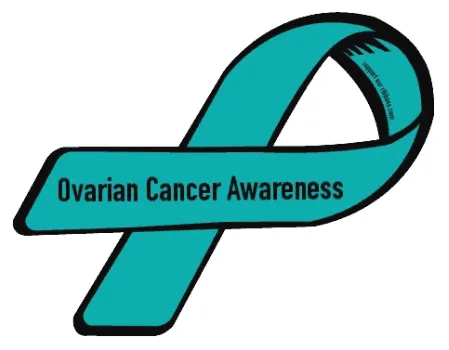Blog

Trust Your Gut: The Subtle Signs of Ovarian Cancer
A recent retrospective review published in February 2022 (1) determined that more than 70% of women with high-risk early ovarian cancer (stage IA and IB) had 1 or more symptoms of ovarian cancer prior to their diagnosis. 40% of the women had 1 symptom and 32% had 2 or more symptoms. Historically, ovarian cancer has been called a silent disease, but this isn’t necessarily true as evidenced by this study.
The most common symptoms of ovarian cancer are:
· Bloating
· Abdominal or pelvic pain
· Difficulty eating and/or feeling full quickly
· Frequent urination or urgency to urinate
The symptoms I just listed are kind of vague…especially if they are something a woman is used to experiencing for other reasons (IBS, endometriosis, etc.). This is why it’s important to “Trust Your Gut.” The “Trust Your Gut” campaign is an awareness campaign created by our local chapter of the Ovarian Cancer Alliance. They started this campaign because early diagnosis is key is changing the statistics around ovarian cancer. And unfortunately, there is no screening test for ovarian cancer so education around the signs and symptoms is extremely important.
As a naturopathic oncologist, I work with cancer patients, families of cancer patients, and anyone looking to reduce their risk of cancer. It is never to early to assess personal risk and work towards making changes to reduce that risk. For patients that fall into the “prevention” group, I do a full review of systems to assess potential contributors and work with them to reduce those factors and aid them in minimizing their risk. I also work with them to optimize nutrition, sleep, exercise, and other parts of their habits and lifestyle. There are so many things that can be done to minimize your personal risk and it’s never to late to start.
Yours in Health,
Dr. Charissa Bausch
1. Chan JK, et al "Symptoms of women with high-risk early-stage ovarian cancer" Obstet Gynecol 2022; DOI: 10.1097/AOG.0000000000004642.

